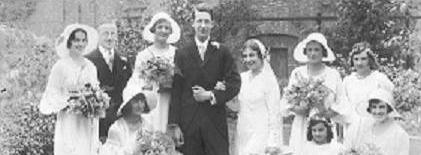 |
The morning after Kristallnacht... Hitler's murderous
Holocaust was now without fear and in full view. |
Today is the 75th anniversary of
Kristallnacht (Crystal-night, "the night of broken glass"). In 1938 the Nazis coordinated an attack throughout Germany on Jewish homes, businesses, and synagogues - as Garrison Keillor has reminded us in
The Writer's Almanac.
My brother Randal Marlin has just issued a
second edition of his book on Propaganda, and I was interested to see how the
Kristallnacht attacks as outlined by Keillor follow the
Propaganda playbook.
1. The attacks were inspired by the murder of a German diplomat by a Jew in Paris. When Hitler heard the news, he decided to use the event to stage a mass uprising in response. (Playbook: Milk events for propaganda purposes.)
2. He and Joseph Goebbels contacted storm troopers throughout Germany and told them to attack Jewish buildings, making the attacks look like spontaneous demonstrations. (Playbook: Stir up public resentment, or fake it.)
3. The police were told not to interfere with the demonstrators, but instead to arrest the Jewish victims! (Playbook: Accuse the victims.)
4. Similarly, firefighters were told only to put out fires in any adjacent non-Jewish properties. (Playbook: Do not protect the victims.)
Everyone cooperated. In all, more than 1,000 synagogues were burned or destroyed. Rioters looted 7,500 Jewish businesses and vandalized Jewish hospitals, homes, schools, and cemeteries. Many of the attackers were neighbors of the victims.
To pile injury on injury:
1. The Nazis confiscated any compensation claims that insurance companies paid to the Jews who lost their property.
2. They imposed a huge collective fine on the Jewish community for the crime of having incited the violence by the murder of the diplomat.
3. They barred Jews from schools and most public places, and forced them to adhere to new curfews.
4. In the days following, thousands of Jews were sent to concentration camps.
Kristallnacht was the opening shot of the Holocaust. Before that night, the Nazis killed people secretly. Afterwards, the Nazis persecuted and killed Jews openly, because the propaganda ensured that public opinion would be against anyone who tried to stop them.
I contacted my brother for his views on
Kristallnacht. He said:
What a terrifying time it must have been to be Jew at that time, recognizing that you had no protection from lawless violence. What needs attention is the original statement of Nazi party principles. They made it quite clear that Jews were not citizens of Germany and were without civic standing regarding voting and other civic rights that we today take for granted. That was back in the early 1920s. The moral for us today is to wake up and see what is happening with respect to erosion of the principle of rule of law, and not to allow it to decay any further.
To document what my brother says about the Nazi party origins, I found a
timeline used in schools for teaching about the Holocaust. It shows that the Nazi principles were developed in 1923-25.
- In 1923, the Nazis attempted to take over Munich and failed. In a 24-day trial, Hitler gained the sympathy of the judges and some of the public, and his fellow Nazis were given a light sentence. At this point, the Nazis were a small group on trial, and no one feared them. In prison, Hitler wrote Mein Kampf, which laid out the Nazi principles of German pride, and enmity to Jews and Bolsheviks in Germany and worldwide.
- In 1925, Hitler's book was published after he emerged from prison and started reconstituting the Nazi party under his sole leadership.
- In 1928, Hitler's party got 2.6 percent of the vote.
- In 1929, the worldwide crash occurred, followed by the Great Depression. This threw the German government into confusion and provided an opportunity for Hitler to exploit public distress.
- In 1930 Hitler's support leaped to 18 percent of the vote.
- In 1932, Hitler got 37 percent.
- In 1933, President Paul von Hindenburg -- reelected the previous year, but aging and at his wit's end -- appointed Hitler as Chancellor. The Nazis moved in, establishing a police state, step by step. Albert Einstein was in USA, decided not to return to Germany after his German residences were ransacked.
- In March 1938, Hitler annexed Austria without bloodshed.
- In October 1938, having threatened Neville Chamberlain's Britain with war, the Western powers looked away as Germany marched into the Sudetenland and carved up Czechoslovakia.
- In November, convinced by now that Western governments were paper tigers, Hitler initiated the Holocaust with Kristallnacht.



